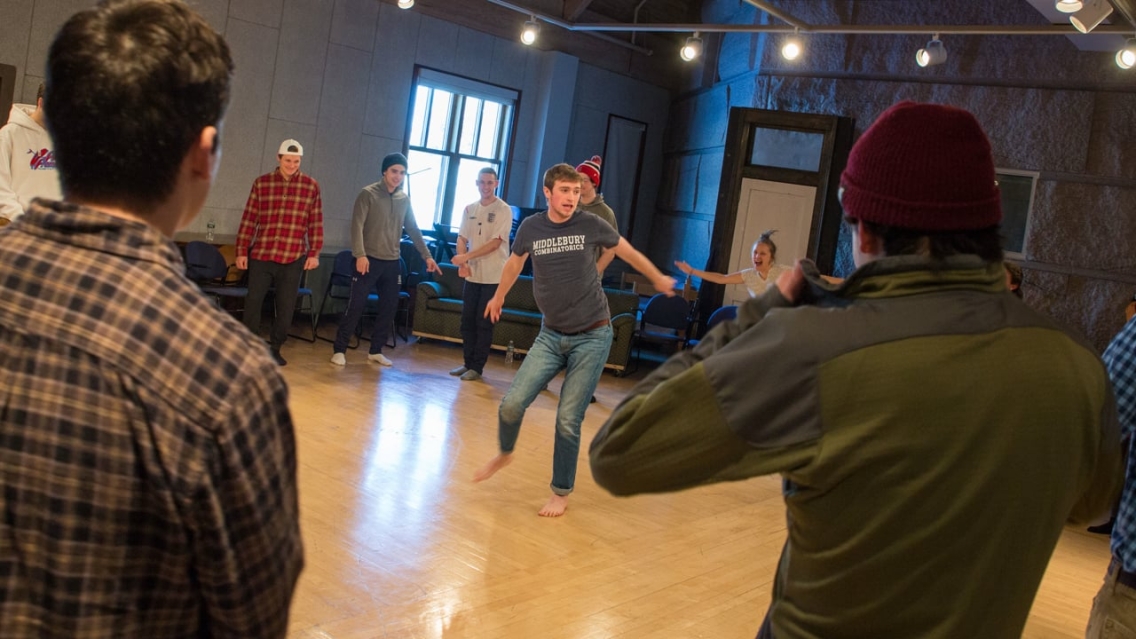J-term Scenes: The Serious Art of Being Funny (video)
MIDDLEBURY, Vt. – Clowns can be controversial. One person’s funny may be another’s terror. But the art of theatrical clowning—no exaggerated makeup or giant shoes involved—offers a deceptively simple way to learn some important life skills. Discovering the Clown, taught by J-term instructor Julia Proctor ’06.5, leads students to find both joy and vulnerability within themselves—learning to be funny, and sometimes not so funny, which can be funny, too.
“Come out on stage by yourself, make us laugh,” Proctor tells her students. “When you do that, you can leave. It sounds simple, but it’s not,” says Proctor, who discovered the beauty of theatrical clowning after graduating from Middlebury with a degree in theatre and political science. Describing the process of clowning as innocent and delightful, she hopes students pick up joy, pleasure, and curiosity while developing “a keen eye on what they think is funny” along their new journey.
Gathering four times a week at the Mahaney Arts Center, the class uses games, songs, improvisation, individual exercises, personal writing, and readings to study the ancient form of entertainment.
“It’s a lot harder to be a clown than you think,” realized Chloe Zinn ’22, of South Hero, Vermont. Back in the fall, Zinn decided to sign up for the class to confront her discomfort with the concept of clowning—putting oneself out there, being on the spot, and trying to be funny.
“When you see someone break on stage, completely just give up and give in—see them for who they are—that’s when I really open up to this person. I like to see how everyone slowly grows confidence in themselves by being around each other and sharing with each other every single time—just opening up and taking those risks.”
Carter Lombardi ’21, a molecular biology and biochemistry major from Marblehead, Massachusetts, wanted to try something “totally outside of the box” in his second J-term. “I had no idea that I would be in a group of four people singing in front of the class about either someone (in the class) or myself,” he said.
Lombardi says he’s glad that Discovering the Clown brought together people from different areas of the school to learn some surprisingly useful lessons.
“These kind of skills—about looking at your audience, understanding what they want from you—are exactly what you can bring to real-life situations, which is super cool and I am super excited to discover more,” said Lombardi.
Unlike a circus clown that one may imagine with giant shoes and heavy makeup, the professional clown wears the red nose, which, according to Proctor, is “a mask that helps reveal what is inside of you.”
“Clowning is very vulnerable work,” said Proctor. “It is about stripping down our defenses, the social masks we call it, of what we put on in society. How do you get rid of those things to find more genuine impulses in yourself, how do you get on stage in front of a group of people and be vulnerable with the hope of making them laugh?”
“There is always a clown in all of us, and that is what makes the journey of digging into oneself and bringing forward the clown inside both rewarding and meaningful,” said Proctor.
By Qian Li ’19; Photos by Chris Spencer


